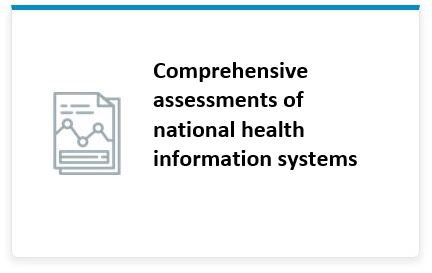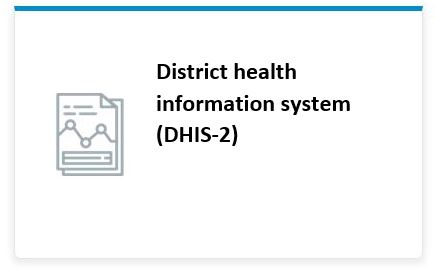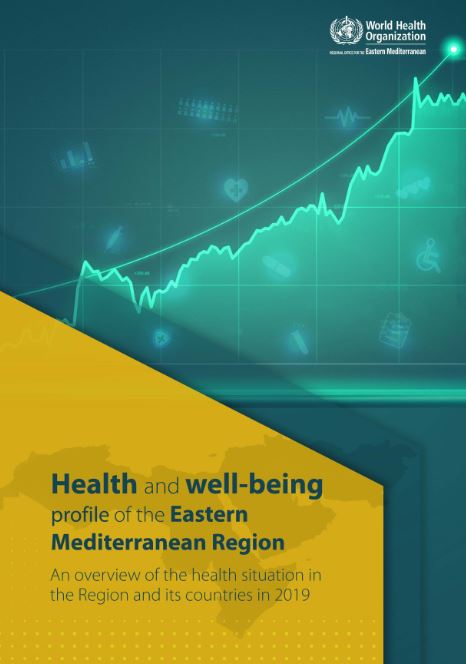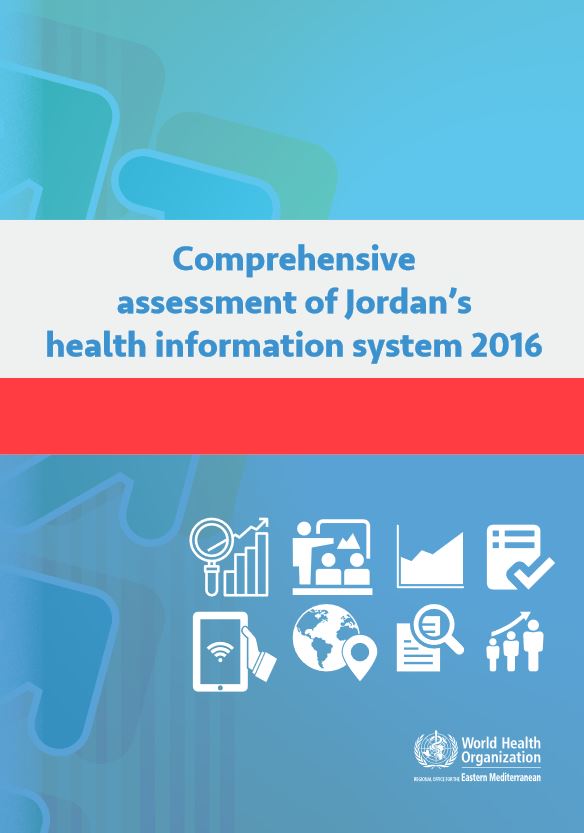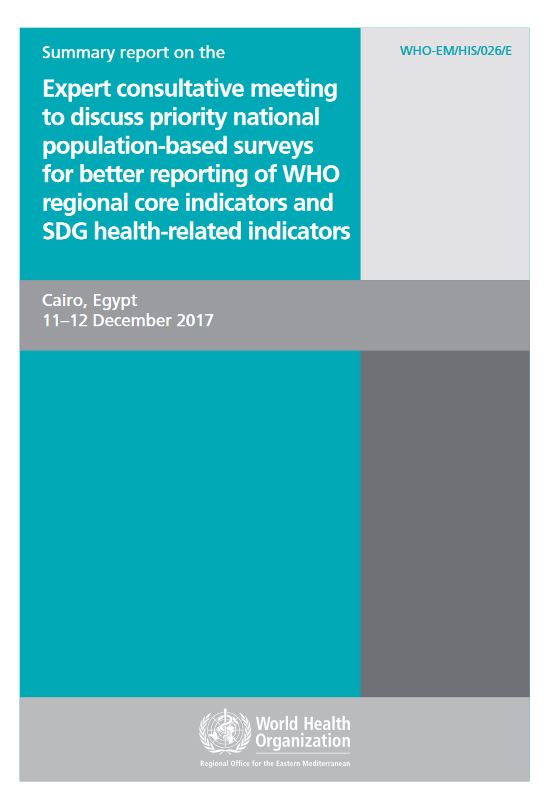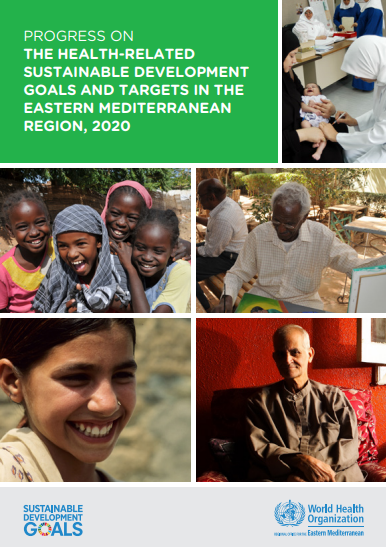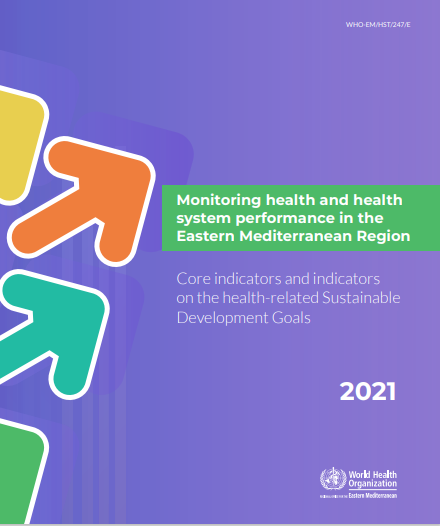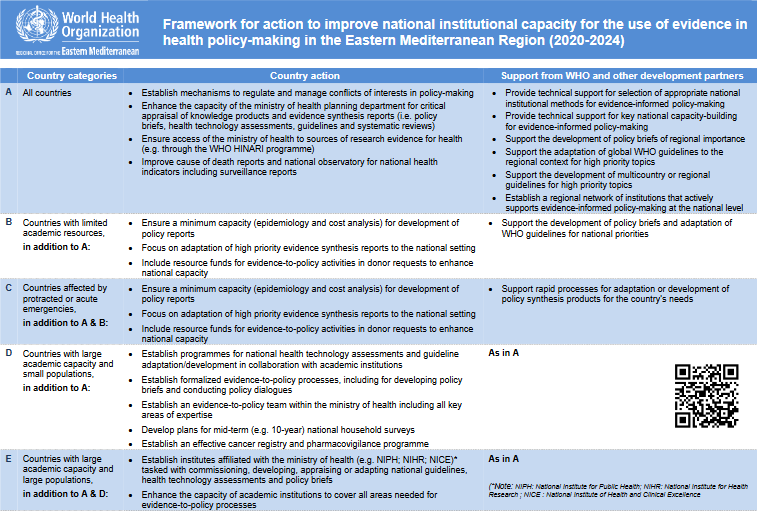
Health information
Reliable and timely health information is essential for proper health management, evidence-based decision-making, optimal use of resources, and monitoring and evaluation of public health situations, actions and outcomes. Robust health information systems that generate reliable and timely data to inform the development of appropriate, effective and cost-effective health policies, which is essential to achieve, and monitor progress, towards the Sustainable Development Goals (SDGs) and universal health coverage (UHC). Its importance is emphasized repeatedly in WHO’s Thirteenth General Programme of Work (GPW 13).
The central focus of GPW 13 is impact in countries and the GPW 13 WHO Impact Framework aims to track the joint efforts of WHO, Member States and partners in achieving the GPW’s “triple billion” targets and the measurable impact on people’s health at the country level. The Impact Framework maps SDG targets and indicators to GPW targets and indicators.
To strengthen their health information systems, countries in the WHO Eastern Mediterranean Region are reporting on a list of regional core indicators. The core indicators focus on three main areas:
- monitoring health determinants and risks;
- assessing health status, including morbidity and cause-specific mortality; and
- assessing health system response.
To strengthen national institutional capacity for the use of evidence in health policy-making in the Eastern Mediterranean Region, the WHO Regional Office has developed a framework for health information systems, which provides practical actions that countries can take to build national institutional capacity and outlines the support that WHO can provide to facilitate this process.
WHO supports countries of the Region in strengthening national health information systems. This includes conducting comprehensive health information system assessments, developing national health information system strategies, improving national capacity in death certification and analysis, promoting International Classification of Disease (ICD) coding and (where appropriate) use of DHIS-2 platforms to enhance the reporting of routine data.
Related link
This health and well-being profile for the Eastern Mediterranean Region presents a comprehensive assessment of the health situation at the regional and country levels, using available data up to October 2019. It is guided by the strategic priorities and goals of WHO’s Thirteenth General Programme of Work (GPW 13): achieving universal health coverage; addressing health emergencies; and promoting healthier populations across the life course. Detailed country profiles for each of the 22 countries present the latest available data for a range of health indicators and the health-related SDGs, and highlight country efforts in implementing the 2030 Agenda for Sustainable Development. The health and well-being profile reviews progress made in the Region towards achieving the ambitious goals of Vision 2023 and GPW 13 and provides an opportunity to assess the opportunities and challenges that lie ahead.
Health and well-being profile of the Eastern Mediterranean Region
SCORE

The SCORE (Survey, Count, Optimize, Review, Enable) for health data technical package aims to provide support to Member States to strengthen health information systems and capacity to monitor and track progress towards the health-related Sustainable Development Goals (SDGs), including universal health coverage (UHC), and other national and subnational health priorities and targets. Developed by WHO, with the financial support of Bloomberg Philanthropies, SCORE addresses WHO’s commitment to support Member States to effectively collect, analyse, report and use data.
The five essential interventions of the “SCORE for health data package” are:
- Survey populations and health risks … to know what makes people sick and their risks
- Count births, deaths and causes of death … to know who is born and what people die from
- Optimize health service data … to ensure equitable, quality services for all
- Review progress and performance … to make informed decisions
- Enable data use for policy and action … to accelerate improvement
The technical package includes a framework of essential interventions and their key elements that can assist in prioritizing investments and actions. The SCORE for health technical package also provides recommended standards, guidance and tools to support implementation of the interventions.
![]()
- is a one-stop solution to address data availability, timeliness, and comparability;
- contains all elements that comprise an optimal health information system in a single package;
- is a tool to help focus priority investments for data, analytical and statistical capacity;
- provides guidance for countries to take targeted policy action to address inequalities and improve population health outcomes;
- provides a method to improve data quality to monitor progress towards global goals with the ability to adapt to local contexts;
- is a means to develop strong health information systems for emergency preparedness and response, not only for COVID-19 but for any public health threat.
Data sources
Communicable disease surveillance systems
 Surveillance is the ongoing systematic collection, analysis, and interpretation of outcome specific data for use in planning, implementing and evaluating public health policies and practices. A communicable disease surveillance system serves two key functions; early warning of potential threats to public health and programme monitoring functions which may be disease-specific or multi-disease in nature.
Surveillance is the ongoing systematic collection, analysis, and interpretation of outcome specific data for use in planning, implementing and evaluating public health policies and practices. A communicable disease surveillance system serves two key functions; early warning of potential threats to public health and programme monitoring functions which may be disease-specific or multi-disease in nature.
The early warning functions of surveillance are fundamental for national, regional and global health security. The COVID-19 pandemic and recent outbreaks of severe acute respiratory syndrome (SARS) and avian influenza, and potential threats from biological and chemical agents, demonstrate the importance of effective national surveillance and response systems.
Hospital information systems
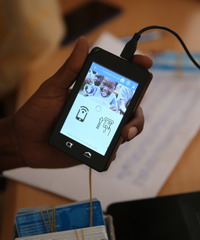 The availability of high quality data on health systems is crucial for informing policy development, monitoring performance, allocating resources efficiently, and ensuring proper functioning of the health system within national policy and regulatory frameworks.
The availability of high quality data on health systems is crucial for informing policy development, monitoring performance, allocating resources efficiently, and ensuring proper functioning of the health system within national policy and regulatory frameworks.
Information and communication technology (ICT) within hospitals has clear links with internal management (including procurement, monitoring and reporting) and clinical management (with electronic records supporting quality development and health system cooperation). ICT and decision support systems can improve the appropriateness of clinical decisions, such as antimicrobial prescribing.
The ability to share information between hospitals and other parts of the national health information system is becoming increasingly important for: treating patients (coordinating care, avoiding medication errors and supporting quality improvement); developing proactive population health management (using analytics to identify patients at risk, targeting early intervention or running recall and screening programmes); effectively managing the performance of providers and identifying opportunities for improvement; and ensuring that patients have access to their own records.
Effective national health information system projects have been implemented in many countries, including low- and middle-income countries, under the initiatives of governments and key stakeholders.
District health information systems
Globally, countries use different systems to collect, process, analyse and report data for decision-making. One platform currently in use is DHIS-2 ‒ a flexible, web-based open-source information system with important visualization features, including the Geographic Information System, charts and pivot tables. DHIS-2 enables users to manage aggregate data with a flexible model first implemented more than 15 years ago. DHIS-2 is being used to monitor patient health, improve disease surveillance and locate outbreaks and speed up access to health data.
Several countries in WHO’s Eastern Mediterranean Region are using or piloting DHIS-2 to collect, process, analyse and disseminate health information at national level or within specific programmes.
Read more about DHIS 2
DHIS COVID-19 Surveillance Digital Data Package
DHIS COVID-19 Surveillance Digital Data Package
Surveys
 Information about population health and health risks is a cornerstone of preventing disease and disability. It enables evidence-informed planning and evaluation of health policies and preventive activities. Health and health risks, which predict future health, are key issues for people's welfare, mainatining a fit-for-purpose workforce while minimizing the need for health care for the ageing population. Surveys provide critical information from other sectors such as poverty programmes, education, water and sanitation, living conditions, nutrition, air quality and security.
Information about population health and health risks is a cornerstone of preventing disease and disability. It enables evidence-informed planning and evaluation of health policies and preventive activities. Health and health risks, which predict future health, are key issues for people's welfare, mainatining a fit-for-purpose workforce while minimizing the need for health care for the ageing population. Surveys provide critical information from other sectors such as poverty programmes, education, water and sanitation, living conditions, nutrition, air quality and security.
Population-based surveys are among the main data sources for understanding population health status and health risks and are a prominent source of data for many health-related Sustainable Development Goal (SDG) indicators. Of the 232 SDG indicators, 77 are derived from household surveys; and surveys are often the only source of data for indicators of behaviour and risk factors. They represent the most important instrument to assess inequalities.
A number of countries such as in the Region such as Islamic Republic of Iran, Sudan and Qatar have developed national survey plans as a consolidated approach to guide data collection efforts.
Related links
United Arab Emirates national health survey report 2017‒2018
Civil registration and vital statistics
A well-functioning civil registration and vital statistics (CRVS) system registers all births and deaths, issues birth and death certificates, and compiles and disseminates vital statistics, including cause of death information. It may also record marriages and divorces.
As part of the civil registration and vital statistics agenda, a regional strategy was developed and implemented for 2014–2019. Assessments of civil registration and vital statistics systems were conducted in all countries of the Region, and road maps and improvement plans were developed for all countries. These resulted in notable improvements in birth and death registration, and quality of reporting of causes of death.
In 2013, birth registration completeness ranged from 0% to 100% in different countries of the Region, with a regional average of 62%. Death registration also ranged from 0% to 100%, but with a regional average of 23%. By 2018, the timely registration of births and deaths in the Region had reached 70% and 54%, respectively.
One of the key steps towards strengthening health information systems in the Region is improving the capacity of countries in accurate registration of vital statistics, including civil registration and cause-specific mortality. All countries of the Region have birth registration systems, although the level of coverage varies. Coverage of birth registration is above 90% in 14 countries of the Region and under 70% in six low-income countries. All countries of the Region except Somalia have death registration, with different levels of coverage. In half of the countries, the coverage of death registration is 90% or above. In 2018, 14 countries reported mortality data disaggregated by cause of death based on ICD-10, with data completeness above 60% in six countries. The average of data completeness for cause of death in the Region is 32%, which is lower than the global rate (49%) and only higher than the African and South-East Asian regions.
Read more about civil registration and vital statistics
Regional strategy for the improvement of civil registration and vital statistics systems 2014-2019 | Arabic | French
Information resources
Health information system assessments
Meeting reports
Health and well-being profile of the Eastern Mediterranean Region
This health and well-being profile for the Eastern Mediterranean Region presents a comprehensive assessment of the health situation at the regional and country levels, using available data up to October 2019. It is guided by the strategic priorities and goals of WHO’s Thirteenth General Programme of Work (GPW 13): achieving universal health coverage; addressing health emergencies; and promoting healthier populations across the life course. Detailed country profiles for each of the 22 countries present the latest available data for a range of health indicators and the health-related SDGs, and highlight country efforts in implementing the 2030 Agenda for Sustainable Development. The health and well-being profile reviews progress made in the Region towards achieving the ambitious goals of Vision 2023 and GPW 13 and provides an opportunity to assess the opportunities and challenges that lie ahead.
Health and well-being profile of the Eastern Mediterranean Region
Progress on the health-related Sustainable Development Goals and targets in the Eastern Mediterranean Region, 2020
The 2030 Agenda for Sustainable Development includes a vision of healthy lives and well-being for all at all ages. This major report is the first comprehensive attempt to chart progress towards the health-related Sustainable Development Goals (SDGs) in WHO's Eastern Mediterranean Region. It presents regional trends between 2015 and 2019 for 50 health-related SDG indicators using available data from WHO and estimates from other United Nations agencies. The report reveals encouraging progress in some areas, but also many gaps and weaknesses in health-related services and outcomes, as well as the data needed to measure them. As such, it will be critical reading for everyone working to plug those gaps and realize the vision of the 2030 Agenda.
Core indicators and indicators on the health-related Sustainable Development Goals
The strengthening of health information systems is a priority for WHO in the Region, as highlighted in Vision 2023, our regional vision for public health. Intensive work with Member States since 2012 has resulted in a clear framework for health information systems. The core indicators focus on three main components: 1) monitoring health determinants and risks; 2) assessing health status, including morbidity and cause-specific mortality; and 3) assessing health system response. The regional core indicators were endorsed by the WHO Regional Committee for the Eastern Mediterranean at its 61st session in 2014, after which Member States started to adopt and report on the indicators. In 2016, the core indicator list was expanded in consultation with Member States to add a set of additional SDG indicators, bringing the total number of core indicators to 75. This year’s report replicates the innovative design that was adopted in 2018, and welcomed by Member States.
All SDG 3 indicators are now included in the core list, and we also report on the coverage of birth and death registration in the Region, a key area of policy interest. These indicators, although they were formally part of the core indicators, were not reported in previous annual reports. Now with improvements and better availability of data in most countries of the Region, they have been added to the report.
Framework for action to improve national institutional capacity for the use of evidence in health policy-making in the Eastern Mediterranean Region (2020-2024)
To strengthen national institutional capacity for the use of evidence in health policy-making in the Eastern Mediterranean Region, the WHO Regional Office has developed a framework for health information systems, which provides practical actions that countries can take to build national institutional capacity and outlines the support that WHO can provide to facilitate this process.
Framework for action to improve national institutional capacity for the use of evidence in health policy-making in the Eastern Mediterranean Region
Arabic | French
Regional Committee documentation
Technical papers
EM/RC66/INF.DOC.3
Regional strategy for the improvement of civil registration and vital statistics systems, 2014–2019
English | Arabic | French
EM/RC60/10
Regional strategy for the improvement of civil registration and vital statistics systems
English - Arabic - French
Resolutions
EM/RC66/R.5
Developing national institutional capacity for evidence-informed policy-making for health
English | Arabic | French
EM/RC60/R.7
Regional strategy for the improvement of civil registration and vital statistics systems 2014–2019
English - Arabic - French
Progress reports
EM/RC64/INF.DOC.5
Regional strategy for the improvement of civil registration and vital statistics systems 2014–2019
English | Arabic | French
EM/RC62/INF.DOC.8
Regional strategy for the improvement of civil registration and vital statistics systems 2014-2019
English | Arabic | French













